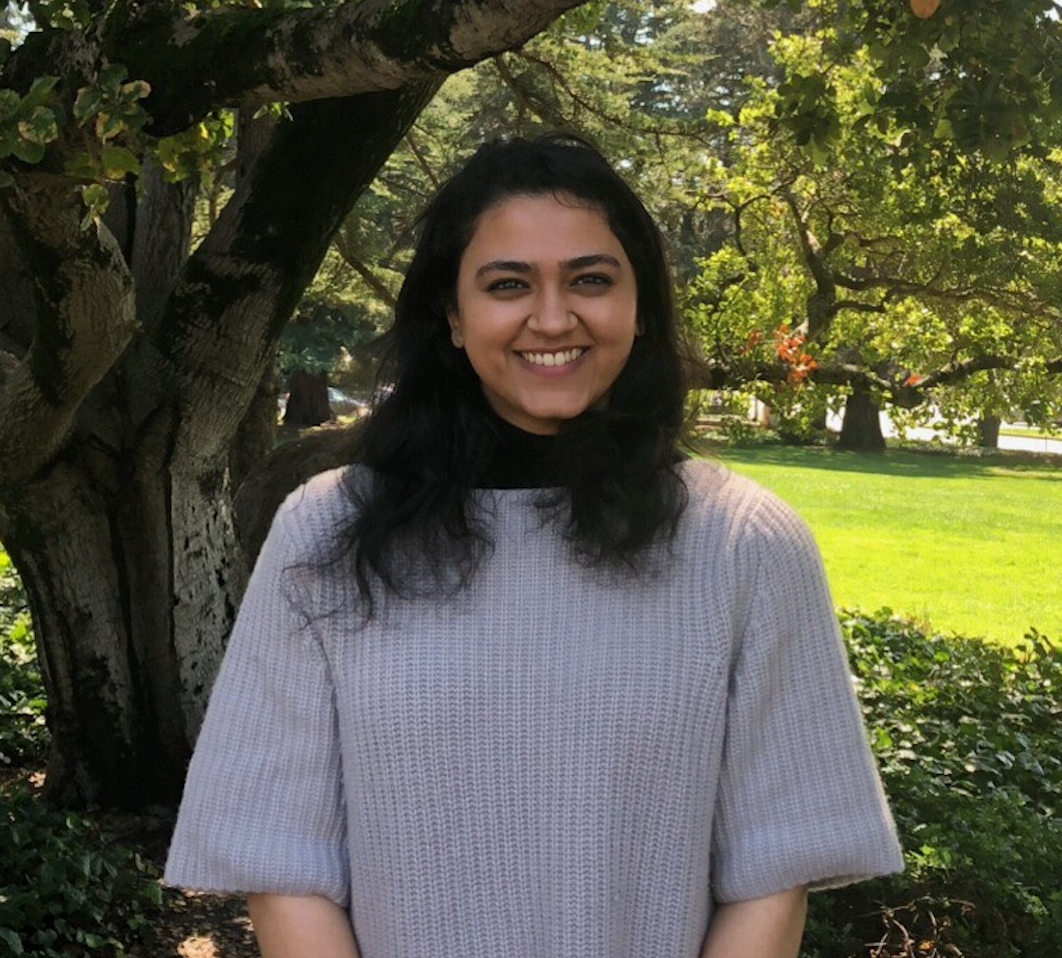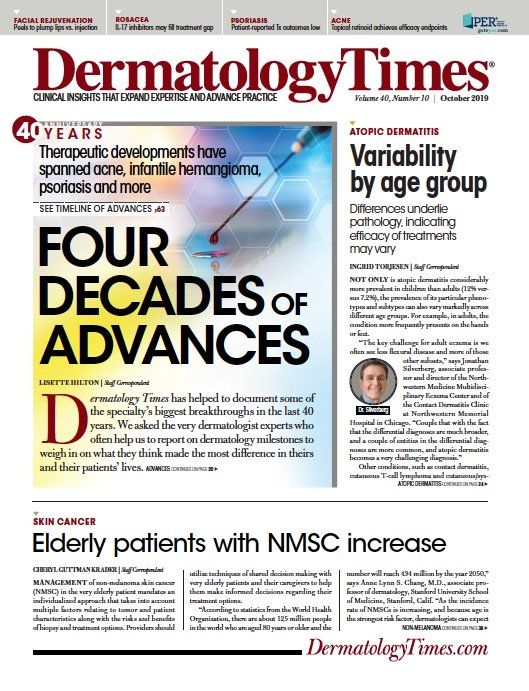
- Case-Based Roundtable
- General Dermatology
- Eczema
- Chronic Hand Eczema
- Alopecia
- Aesthetics
- Vitiligo
- COVID-19
- Actinic Keratosis
- Precision Medicine and Biologics
- Rare Disease
- Wound Care
- Rosacea
- Psoriasis
- Psoriatic Arthritis
- Atopic Dermatitis
- Melasma
- NP and PA
- Skin Cancer
- Hidradenitis Suppurativa
- Drug Watch
- Pigmentary Disorders
- Acne
- Pediatric Dermatology
- Practice Management
- Prurigo Nodularis
- Buy-and-Bill
Publication
Article
Dermatology Times
Ortho Dermatologics Aspire Higher scholarship recipient shares story, dreams
Author(s):
Niki Vora reflects on how her struggles with untreated atopic dermatitis, folliculitis and cystic acne led her to writing her scholarship-winning essay.
Niki Vora, M.D.

Niki Vora’s life has changed dramatically for the better since she was a kid with out-of-control and untreated atopic dermatitis.
At 26, Vora is a medical student at University of California San Francisco (UCSF). She was enrolled in a dual master’s degree program at Berkeley University of California last year when an essay she wrote about her experience with skin disease earned her a $10,000 Ortho Dermatologics Aspire Higher scholarship.
WHAT IT WAS LIKE
Vora grew up with not only atopic dermatitis that she says covered her body, but she also had excessive hair growth, which led to folliculitis.
“You can imagine a teenage girl with a lot of hair on her face and a lot of inflammation on her face. It wasn’t easy. And the eczema, unfortunately due to my constant picking and I’m guessing sun exposure, led to a lot of hyperpigmentation,” Vora said.
RELATED: Current thinking on acne management
But Vora says she just dealt with her skin issues the best she could because she didn’t have health insurance and had no access to a dermatologist.
The problem was she wasn’t really dealing with her skin conditions.
“I think derm conditions affect us in very insidious ways,” Vora says.
Her skin issues (she also had cystic acne) were visible for the world to see. People would comment constantly, she says, on how she looked.
“And those comments stay with you your whole life,” she says. “When we were kids and people would want to hold hands with each other, people wouldn’t want to hold my hand because it was icky.”
Vora remembers one of her teachers took pictures of everyone in her class and posted one photo at a time in a Power Point
presentation at the end of the school year. Classmates commented on every photo except Vora’s. When hers was up on the screen, everyone was silent, she says.
RELATED: Nonsteroidal topical treatments for psoriasis, atopic dermatitis
THINGS GOT BETTER WITH THE RIGHT CARE
Vora finally saw a dermatologist when she was in college. Her mother saved for a decade, she says, so Vora also could get fullbody laser hair removal.
“Finally having care and also having laser hair removal helped my conditions a lot. My eczema was under control and because I was removing hair, I had less folliculitis. I used to have bad cystic acne. All of that was decreased. My hyperpigmentation started going away,” Vora says. “It was crazy. In a span of I think two years my skin started to look clear. And I feel like people treat you nicer when you have clear skin.”
Vora’s dermatologist prescribed topical triamcinolone and hydrocortisone. It also helped that Vora received guidance on how to moisturize her skin.
Prior to seeing the dermatologist, Vora says she would haphazardly moisturize her skin with whatever fragrance-filled products she had. That didn’t help. What helped was being more conscious of what she put on her skin and moisturizing after showers with moisturizers with ceramides.
RELATED: Re-think rescue approach in atopic dermatitis
“Now I just have a little tube of triamcinolone in case I have a flair up. But everything has been pretty under control for me, which I’m really grateful for,” she says.
The dermatologist helped by being kind and listening. It was the first time, Vora says, that a doctor didn’t just tell Vora to wash her face with soap.
“Can you imagine hearing that for your entire life? It was the first time someone who specialized in skin was looking at me and said I know what you’re going through.... They aren’t down-playing the effect it has on someone,” Vora says.
Downplaying the effect of skin disease is a problem, according to Vora.
“I think if we take a step back, there are so many psychosocial issues that go hand-in-hand with having a skin disease. It’s not necessarily deadly. That’s why it’s so downplayed in the medical community. But it is a huge factor of life. We live in an image-based society. So, it is a huge factor in life in how people view you and therefore treat you,” she says.
PAYING IT FORWARD
Vora is considering going into dermatology.
She says she loves the specialty because of her experience with skin disease and how a dermatologist helped her. She also did charity work in India, helping to care for patients who had infectious diseases. Vora says skin issues and the need for wound care were common in those patients.
“I always feel like no matter what specialty I’m in, I will notice issues like dermatology that are constantly overlooked. It’s like something small that you could do that would make a big difference in a patient’s life - make them feel human while they’re going through the horrible diseases and difficult treatments,” Vora says.
RELATED: How stress impacts chronic skin conditions
She encourages other students with skin conditions to apply for the Ortho Dermatologics scholarship program.
“I almost didn’t go for this scholarship. I thought I didn’t have a chance and thought my situation was so common. There wasn’t anything special about it. It was just something that happened to me that continues to stick with me,” she says. “But I think that’s why they gave it to me because it is so common. It is something that sticks with people. I think anyone who is going to college who has a similar story should apply. It’s nice being part of a community that gets it. They’re very supportive. In terms of scholarships that I’ve applied to, Ortho Dermatologics is probably the most supportive after. They keep in touch with you, which makes me feel good.”
Vora is one of several students awarded scholarships each year through Ortho Dermatologics’s scholarship program for students with dermatologic conditions. The Aspire Higher scholarship program has awarded 33 scholarships, totaling more than $550,000 toward higher education, since 2013.
Scholarships are open to applicants or current attendees of a two- or four-year college, university or advanced (post-high school) vocational or technical school, and are available in three categories: Undergraduate Scholar Awards; Graduate Scholar Awards; and Today’s Woman Scholar Awards, for students who are mothers pursuing either undergraduate or graduate degrees.

2 Commerce Drive
Cranbury, NJ 08512
All rights reserved.





